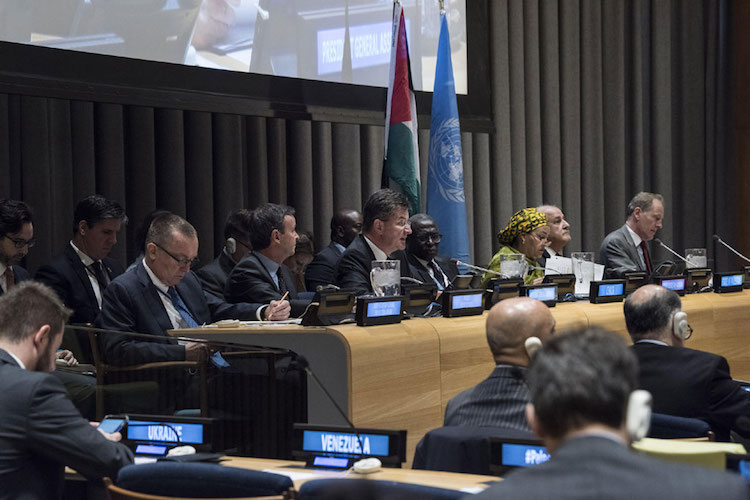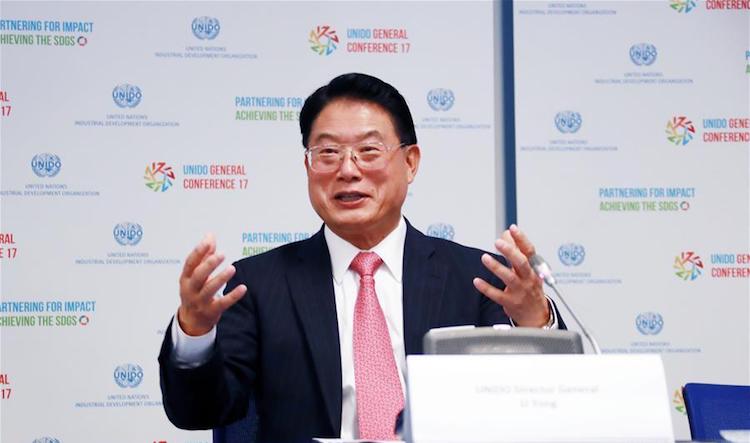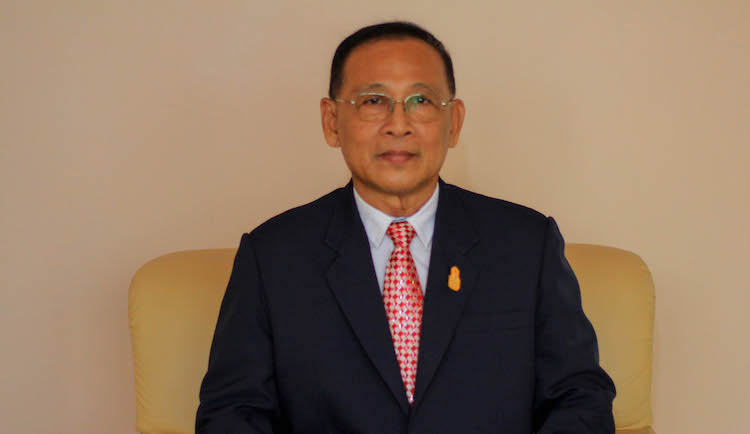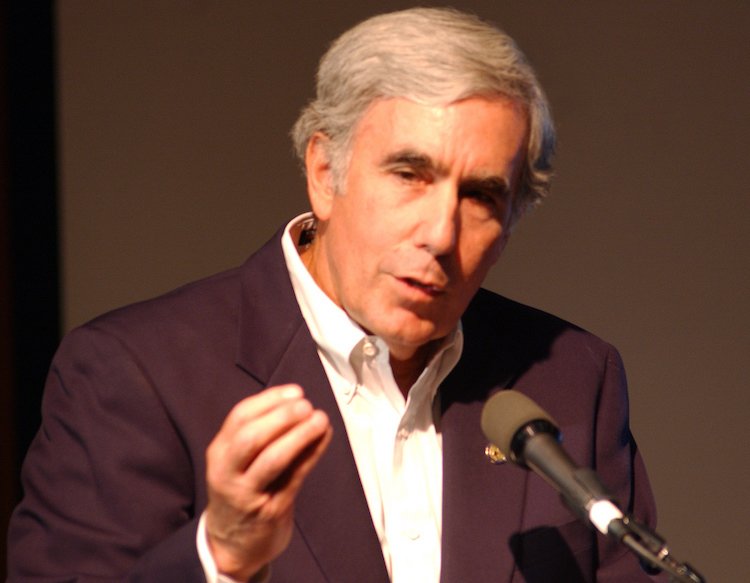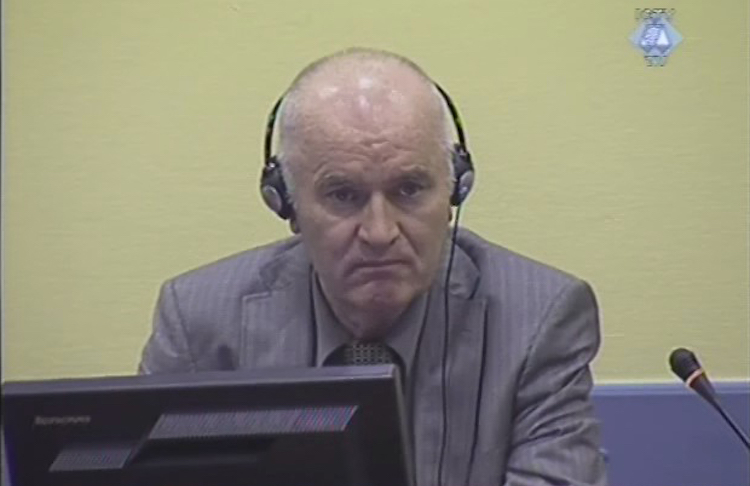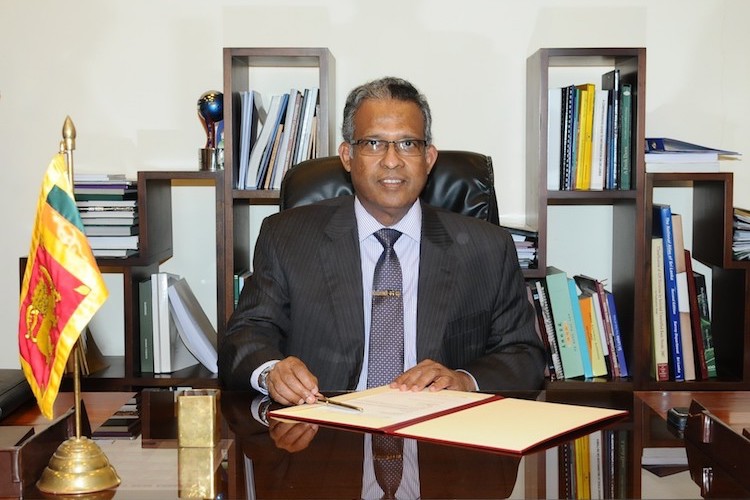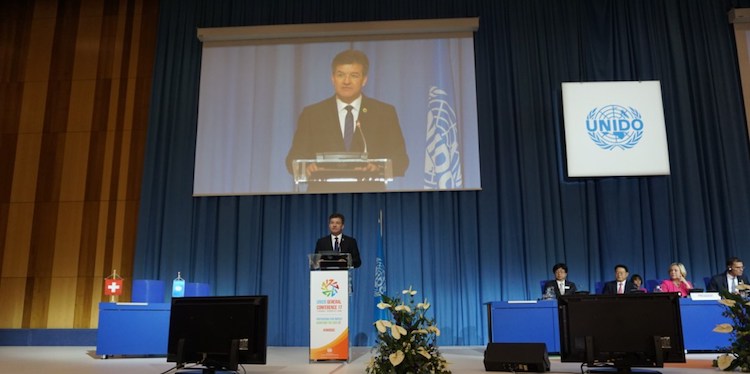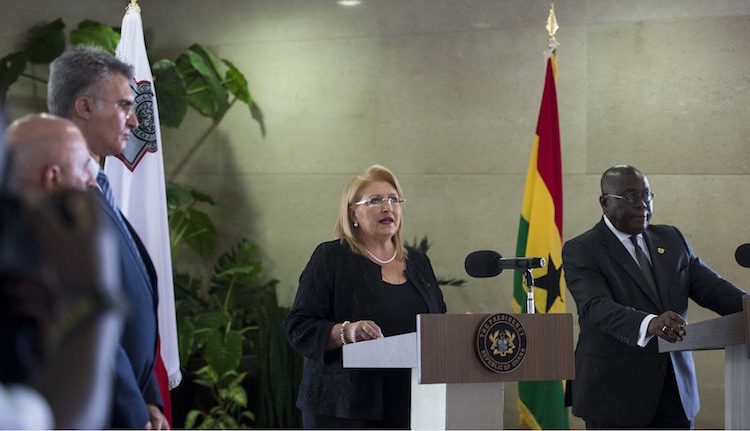By Daryl G. Kimball Daryl G. Kimball is Executive Director of the Arms Control Association. This article first appeared with the caption ‘Step Back From the Nuclear Brink’. WASHINGTON, D.C. (IDN-INPS) – Over the past year, cavalier and reckless statements from President Donald Trump about nuclear weapons and his threat to unleash “fire and fury” […]
UNGA Adopts Six Resolutions on Palestine, Middle East
By J Nastranis UNITED NATIONS (IDN) – Seventy years since the United Nations adopted the Partition Plan for Palestine as Resolution 181 (1947) on November 29, 1947 a hectic debate in the General Assembly has reaffirmed that peace in the Middle East is nowhere on the horizon. In fact, several delegates voiced concern that the […]
UNIDO Chief Has A ‘Dream’, Urgently Needs Funds
By Ramesh Jaura VIENNA (IDN) – Li Yong has a ‘dream’, the dream to give young people, living in similarly poor conditions as he experienced in China in his childhood, an opportunity to play a part in “the global fight against poverty”. Li was re-appointed head of the United Nations Industrial Development Organization (UNIDO) on […]
From Arizona to Bangkok, Determined to Help Thailand
By Jutta Wolf BERLIN | BANGKOK (IDN) – There is something exceptional about Dr. Thanawan Bhookphan who was born in Min Buri, one of the 50 districts of Bangkok, the capital city of Bangkok, and spent over 30 years in the United States. He received Mechanical Engineering Degree from the University of Arizona, and Master’s […]
China and UNIDO Have Engaged in Substantial Cooperation
By WANG Shouwen WANG Shouwen is China’s Vice-Minister of Commerce. Following are extensive excerpts from his address at the 17th session of the UNIDO General Conference ‘Partnering for Impact: Achieving the Sustainable Development Goals’ in Vienna on November 27, 2017 – after Li Yong was re-appointed for a second term (2017-2021) as the Director General […]
Progress Toward Nuclear Weapons Abolition
Viewpoint by David Krieger* SANTA BARBARA | USA (IDN-INPS) – The Nuclear Age Peace Foundation has been working to end the nuclear weapons threat to humanity and all life for 35 years. We were one of many nuclear disarmament organizations created in the early 1980s, in our case in 1982. Some of these organizations have endured; […]
Mladic Verdict After 22 Years Cries for Shake-up of the UN Court
Viewpoint by Jonathan Power* LUND, Sweden (IDN-INPS) – Timing is everything. Dear Reader you’re right. If I was going to write on the conviction in a UN court of General Ratko Mladic I should have done it last week when the court sentenced him to life imprisonment for the mass murder of a significant part […]
In Sri Lanka, Development Begins with Reconciliation
By Prasad Kariyawasam Prasad Kariyawasam is Sri Lanka’s Foreign Secretary. Following are extensive excerpts from his address to the UN’s Peacebuilding Commission at the UN Headquarters in New York on November 20, 2017. – The Editor UNITED NATIONS (IDN) – Sri Lanka is known, perhaps mostly, as the place where Ceylon Tea originates from, or […]
Industrial Development is About a Decent Life for All People
By Miroslav Lajčák, President of the UN General Assembly Following are extensive extracts from the remarks of Miroslav Lajčák, President of the 72nd Session of the UN General Assembly, at the 17th session of the UNIDO General Conference ‘Partnering for Impact: Achieving the Sustainable Development Goals’ in Vienna on November 27, 2017. Li Yong was […]
Need to Perceive Africa from an African Point of View
By Marie-Louise Coleiro Preca, President of Malta Following are extensive extracts from the speech delivered by Marie-Louise Coleiro Preca, President of Malta, at the 17th session of the UNIDO General Conference ‘Partnering for Impact: Achieving the Sustainable Development Goals’ in Vienna on November 27, 2017. Li Yong was re-appointed for a second term (2017-2021) as […]


